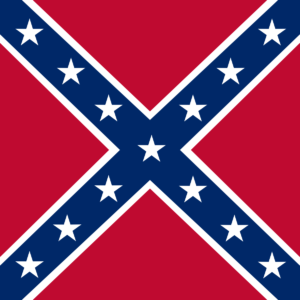
Please type your question(s) in the “LEAVE A REPLY” box at the bottom of this page.
FAQs:
Is the Constitution a living document?
Yes and no, it is living in the sense that it can be amended, yet it is not living in the sense that anyone, including the Supreme Court, can interpret it by any other means than its original intended meaning of each word or clause.
Is the Constitution a secular document?
No, the overwhelming majority of the framers of the Constitution held an orthodox Christian worldview as did the founding culture that ratified the Constitution. Evidence of this is found in two places within the document. The first is in Article I, Section 7 where it states, “If any Bill shall not be returned by the President within ten Days (Sundays excepted)…” They exempted Sunday, because it was the Lord’s day of rest and not a work day. The second is in Article VII, where it states, “done in Convention by the Unanimous Consent of the States present the Seventeenth Day of September in the Year of our Lord one thousand seven hundred and Eighty seven…” They dated the Constitution by the birth of their Lord, Jesus Christ and no group of atheists, agnostics, deists or secularists would have done that.
Were the founding fathers a bunch of atheists?
No, none of the founders were atheists, because each of them acknowledged a supreme being in one form or another.
Were the founding fathers a bunch of deists?
Although, there was one person who exerted significant influence in, provided prominent leadership for, or had a substantial impact upon the birth, development, and establishment of America as an independent, self-governing nation that can be classified in some sense as a deist, Thomas Paine, the very few other less religious founding fathers may not have been devout Christians, like Benjamin Franklin, or may have strayed from orthodox Christianity towards the end of their life, like Thomas Jefferson, but by the testimony of their own words, they were not deists.
Were the founding fathers a bunch of white slave owners?
Although it is true each of the founding fathers were white Europeans not all of them owned slaves. Only thirty-five of the fifty-five signers of the Declaration of Independence were slave owners and of those, many spoke out against the institution of slavery.
Is the Constitution a pro-slavery document?
No, the Constitution outlawed the importation of slaves after January 1808 (Article 1, Section 9, Clause 1) and the three-fifths rule (Article 1, Section 2, Clause 3) limited representation from pro-slavery States, so they could not disproportionately dominate the House of Representatives to pass pro-slavery legislation. The three-fifths rule was not, as many have claimed, a measure of human worth on slaves.
Were the founders against women’s rights?
If by this question one is implying the founders restricted women from voting, they are mistaken, because voting qualifications were not included as one of the powers delegated to the national government. The House of Representatives was the only entity, at the national level, for which the founders intended its members to be elected via popular vote. As Article I, Section 2 states, “the Electors in each State shall have the Qualifications requisite for Electors of the most numerous Branch of the State Legislature.” This means each State was to determine voter qualifications and as such, voter qualifications were out of the jurisdiction of the national government.
To answer the original question more directly, the founders were pro-family not anti-women. If one judges the founders by modern standards, it is easy to understand why a person would think of them in a way they would never have considered, but doing so is a grave injustice. Historical figures must be judged by the standards of their day. The founders saw women as equals while they also respected and held sacred the family unit and it was in their upholding the family unit over so called “women’s rights”* that modern Americans have misinterpreted their intent.
The founders understood nations are nothing more than groups of families, so without families their would not be any nations. They endeavored to uphold biblical gender roles** in society in an effort to preserve the nation’s posterity and honor God. This is not to imply each and every one of them perfectly upheld the biblical standard on gender relations, but as a society they made a better attempt at it than American culture has since that time.
*For more about women’s rights see The Origin of Rights.
**For more about gender roles see Women in Combat.
Is it constitutional to shut down the government?
It is true no express power has been delegated to any of the three branches to shut the government down, yet when the government is shut down it is the undesired outcome of a failure to meet constitutional obligations. Specifically, Article I, Section 9 “No Money shall be drawn from the Treasury, but in Consequence of Appropriations made by Law;” When lawmakers are unable to legislate appropriations (funding bills) then the government is unable to legally meet its obligations and must stop spending until such appropriations are made.
Where can one find a list of the Founding Principles established by the founders?
Nowhere. Principles are generally not listed, but instead derived from the writings and speeches people make. In order to derive the Founding Principles, one must study the worldview of the founders to understand the source of their morals and values. It is from these morals and values we can understand the underlying principles upon which they based their decisions.
When did they amend the Constitution to make secession illegal?
The Constitution has never been amended to make secession illegal and secession is just as legal today as when the States and the people ratified the Constitution and when Lincoln illegally violated that State right in 1861. See The Case Against Secession.
Was the United States founded as a theocracy?
The answer to this question is contingent upon one’s understanding of theocracy. If by ‘theocracy’ a person means a nation governed by clergy of a church, or some other organized religion, then the answer is absolutely no. That type of government, where an organized religion holds power over a state, is actually called an ‘ecclesiocracy.’
If, on the other hand, one defines ‘theocracy’ by its Greek origin, where ‘theo-’ means ‘god’ and ‘-cracy’ means ‘rule’, then the answer is yes. The founders of America understood the God of the Holy Bible, the father of Abraham, whose Son is Jesus Christ, was the lawgiver to the nation they founded.
They made this clear in Article VII of the US Constitution by dating that document “in the Year of our Lord one thousand seven hundred and Eighty seven.” If anyone is interested in understanding, in more detail, how the God of the Bible is the lawgiver of America see Is Religion the Foundation of Justice and Law?, Religious Freedom, and The Origin of Rights.
Why did the founders use the word “Militia” in the Second Amendment instead of just saying, “all citizens have the right to keep and bear arms”?
In order to answer this question let us first break down the sentence into its grammatical parts. The independent clause of the Second Amendment, also known as the main point, is “the right … shall not be infringed”; “the people” is an object of the preposition “of” and modifies “right”; “to keep and bear” is an infinitive phrase which also modifies “right”; and the participial phrase “being necessary to the security of a free State” acts as an adjective modifying “Militia”. This leaves us with the question, “What role does the phrase ‘A well regulated Militia’ play in the sentence?”
It is uncommon in modern syntax to begin a sentence with an appositive, a noun or noun phrase that renames a noun right beside it, so the natural inclination for modern readers is to assume “Militia” is the main noun of the sentence and the phrase “the right…” is an appositive to the most immediately preceding noun, “security”, which by itself does not make much sense. When reading the Second Amendment, however, we all must keep in mind that beginning sentences with appositives was not uncommon in our founding era and that is exactly what the framers of the Bill of Rights did in the Second Amendment.
This means the main predicate, “shall not be infringed”, which makes an assertion about the sentence subject, modifies the main subject “the right of the people to keep and bear Arms,”; i.e., that the right of the people to keep and bear Arms shall not be infringed. The phrase “A well regulated Militia” is an appositive that better describes “the people” where “the right of the people” is the main subject of the sentence.
We can be assured this is the intended meaning because of the way our founders defined “Militia”; i.e., they understood it as a synonym for all American citizens. George Mason described it as “the whole people, except for a few public officials.”
To answer the question more directly, the authors of the Second Amendment used “Militia” to better describe the primary purpose for the people to keep and bear arms; i.e., to maintain the security of a free State. As long as all citizens can keep and bear arms without infringement they have a means to resist tyranny, but when those rights are infringed they lose their freedom. Please read Gun Control for more detailed information.



 Western Christian orthodoxy, in which American culture is rooted, came out of the dispute with the eastern Christian Church. There was a time when Christianity was the predominant faith throughout what is now known as the Middle East and it reached all the way to modern China. The eastern Christian empire, however, did not hold to the same beliefs as the western one. Today, except for a few pockets of Christians in what is now an Islamic dominated region, Christianity in that area has all but disappeared. The eastern Christian empire and their different understanding of the nature of Christ are vital, not only to the story of Christianity, but to the understanding of American culture and reasonable expectations concerning the future of our nation given its present political course.
Western Christian orthodoxy, in which American culture is rooted, came out of the dispute with the eastern Christian Church. There was a time when Christianity was the predominant faith throughout what is now known as the Middle East and it reached all the way to modern China. The eastern Christian empire, however, did not hold to the same beliefs as the western one. Today, except for a few pockets of Christians in what is now an Islamic dominated region, Christianity in that area has all but disappeared. The eastern Christian empire and their different understanding of the nature of Christ are vital, not only to the story of Christianity, but to the understanding of American culture and reasonable expectations concerning the future of our nation given its present political course.